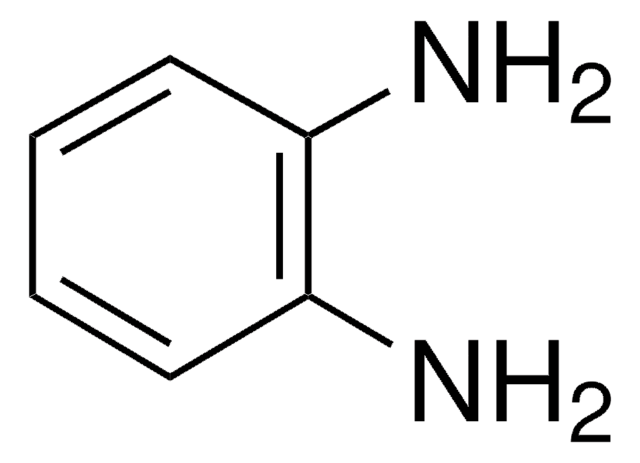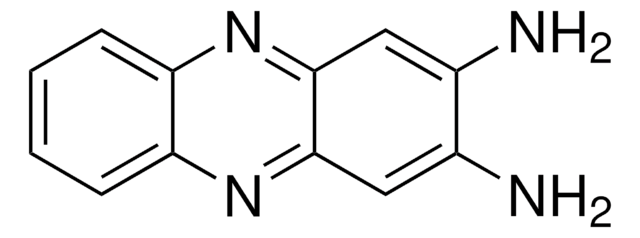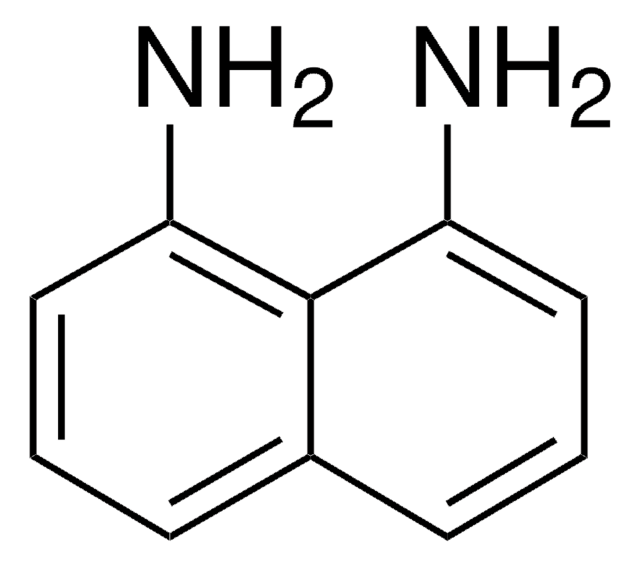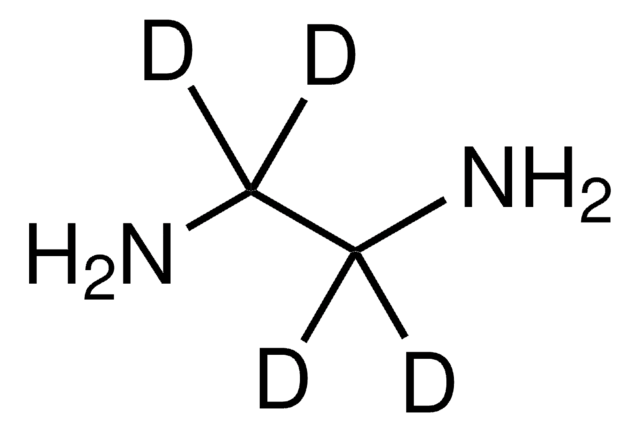About This Item
추천 제품
Agency
suitable for EPA 300
Quality Level
vapor density
2.07 (vs air)
vapor pressure
10 mmHg ( 20 °C)
제품 라인
ReagentPlus®
분석
≥99%
양식
liquid
autoignition temp.
716 °F
expl. lim.
16 %
refractive index
n20/D 1.4565 (lit.)
bp
118 °C (lit.)
mp
8.5 °C (lit.)
solubility
H2O: soluble at
density
0.899 g/mL at 25 °C (lit.)
작용기
amine
SMILES string
NCCN
InChI
1S/C2H8N2/c3-1-2-4/h1-4H2
InChI key
PIICEJLVQHRZGT-UHFFFAOYSA-N
유전자 정보
human ... FNTA(2339)
유사한 제품을 찾으십니까? 방문 제품 비교 안내
관련 카테고리
일반 설명
애플리케이션
DAE can also be used in the following reduction reactions:
- DAE/Borane (1:1) complex is used as a highly selective reducing agent for the conversion of cinnamaldehyde to cinnamyl alcohol.
- DAE/Li complex is used as an efficient reagent for the reduction of alkenes, aromatic hydrocarbons, phenols, and alcohols.
- Synthesis of nucleus pulposus (NP)-like collagen-glycosaminoglycans (CG) core.
- Surface modification of epoxy-activated cryogel.
- Alteration of the surface of carbon nanoparticles (CNPs) to generate CNPs-ethylene.
- Surface modification of triazolate-bridged metal-organic framework.
- As a solvent in the synthesis of ZnS (zinc sulfide) and ZnSe (zinc selenium) precursors by solvothermal process.
- As a reactant in the synthesis of Pd/C-ethylenediamine complex catalyst.
- As a chelating agent in the synthesis of β-Co(OH)2 nanocrystals.
- Synthesis of ethylenediamine-templated iron arsenates and fluoroarsenates.
- As a template agent and coordination agent in the synthesis of CdS (cadmium sulfide) nanocrystals.
법적 정보
신호어
Danger
유해 및 위험 성명서
Hazard Classifications
Acute Tox. 3 Dermal - Acute Tox. 4 Inhalation - Acute Tox. 4 Oral - Aquatic Chronic 3 - Eye Dam. 1 - Flam. Liq. 3 - Resp. Sens. 1B - Skin Corr. 1B - Skin Sens. 1B
Storage Class Code
3 - Flammable liquids
WGK
WGK 1
Flash Point (°F)
100.4 °F - closed cup
Flash Point (°C)
38 °C - closed cup
개인 보호 장비
Faceshields, Gloves, Goggles, type ABEK (EN14387) respirator filter
이미 열람한 고객
문서
Professor Aran (Claremont University, USA) thoroughly discusses the engineering of graphene based materials through careful functionalization of graphene oxide, a solution processable form of graphene.
자사의 과학자팀은 생명 과학, 재료 과학, 화학 합성, 크로마토그래피, 분석 및 기타 많은 영역을 포함한 모든 과학 분야에 경험이 있습니다..
고객지원팀으로 연락바랍니다.











